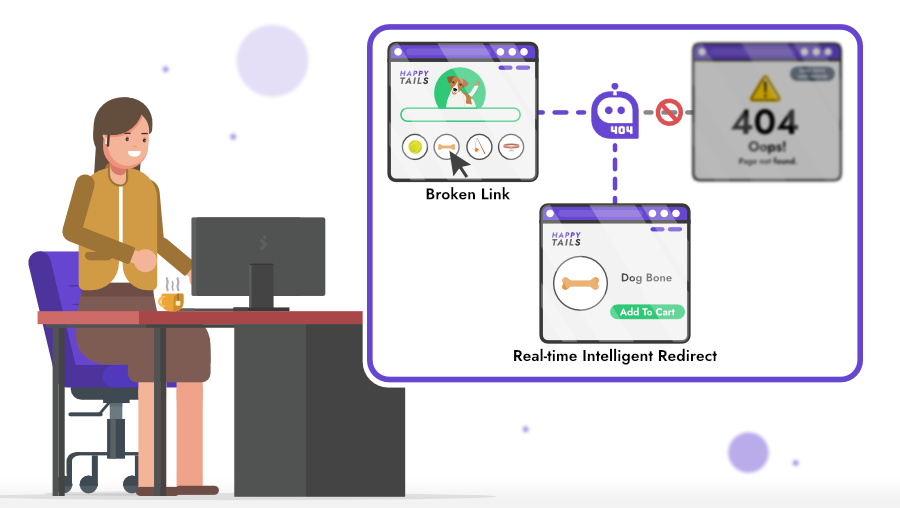In e-commerce, the need for innovative customer support solutions has never been greater. AI-powered chatbots have emerged as a pivotal technology, reshaping how online retailers interact with customers and manage their inquiries. These chatbots, leveraging advanced machine learning and natural language processing, provide instant, efficient, and personalized support, enhancing customer satisfaction and driving sales.
In this Article
The Evolution of Customer Support
Traditional customer support often involved long wait times, limited availability, and inconsistent service quality. This model is not conducive to the fast-paced nature of e-commerce, where customers expect quick resolutions. In a recent Salesforce study, 83% of customers expect to interact immediately with someone upon contact. AI-powered chatbots have transformed this landscape by offering 24/7 support, reducing wait times, and providing consistent, high-quality service.
Key Benefits of AI-Powered Chatbots
There are a number of key benefits to AI-Powered chatbots, especially in light of the recent advances in LLM based chat technology.
- 24/7 Availability: AI chatbots are always available, providing round-the-clock support. This continuous availability ensures that customers can get assistance whenever they need it, regardless of time zones or business hours. This level of accessibility is crucial for maintaining customer satisfaction and loyalty.
- Instant Response: One of the most significant advantages of AI chatbots is their ability to provide instant responses. Unlike human agents, who may need time to look up information or consult with colleagues, chatbots can instantly access vast databases to answer customer queries. This immediacy helps in resolving issues quickly and efficiently.
- Personalized Interactions: AI chatbots use data analytics and machine learning to offer personalized interactions. By analyzing customer data, chatbots can tailor their responses based on individual preferences and past interactions. This personalization enhances the customer experience, making them feel valued and understood.
- Handling Routine Inquiries: A significant portion of customer inquiries are routine and repetitive. AI chatbots excel at handling these types of questions, freeing up human agents to focus on more complex and high-value tasks. This not only improves efficiency but also ensures that customers receive quick resolutions to their common issues.
- Scalability: AI chatbots can handle multiple inquiries simultaneously, making them highly scalable. This scalability is particularly beneficial during peak shopping seasons or promotional events when the volume of customer inquiries can spike dramatically.
Enhancing the E-Commerce Experience with AI-Powered Chatbots
AI-powered chatbots are not just about answering queries; they play a strategic role in enhancing the overall e-commerce experience. Here’s how:
Guided Shopping Experience
AI chatbots can act as virtual shopping assistants, guiding customers through their shopping journey. They can recommend products based on browsing history, previous purchases, and customer preferences. This guidance helps customers find what they are looking for quickly, reducing the time spent searching and increasing the likelihood of a purchase.
Proactive Customer Engagement
Chatbots can proactively engage with customers based on their behavior on the website. For example, if a customer spends a considerable amount of time on a particular product page, the chatbot can initiate a conversation, offering additional information or answering questions. This proactive engagement can help in converting hesitant visitors into buyers.
Handling Post-Purchase Inquiries
Post-purchase support is crucial for customer satisfaction. AI chatbots can assist with order tracking, return processes, and feedback collection. By providing timely and accurate information, chatbots help in building trust and ensuring a positive post-purchase experience.
Reducing Cart Abandonment
Cart abandonment is a significant challenge in e-commerce. AI chatbots can address this issue by engaging with customers who have abandoned their carts, reminding them of their pending purchases, and even offering incentives like discounts or free shipping to complete the purchase.
NotFoundBot: A Case Study in AI-Powered Chatbot Efficacy
NotFoundBot is an excellent example of how AI chatbots can be leveraged to address specific challenges in e-commerce. This service focuses on turning 404 errors into opportunities for customer engagement and sales recovery.

Auto-Redirect and Assisted Redirect
When visitors land on a 404 error page, NotFoundBot uses advanced AI to determine their intent and auto redirect them to the appropriate page. If the AI cannot confidently predict the correct page, an assisted redirect feature engages the visitor with intelligent suggestions and an AI-powered chatbot interface for further assistance.
Impact on Customer Retention
Studies have shown that 74% of e-commerce visitors who encounter a 404 error page leave and never return. By utilizing AI-powered redirection and assistance, NotFoundBot helps recover a significant portion of these lost visitors, transforming potential lost sales into actual revenue.
Future of AI-Powered Chatbots in E-Commerce
The future of AI chatbots in e-commerce looks promising, with continuous advancements in AI and machine learning technologies. Here are some trends to watch:
- Voice-Activated Assistants: With the rise of voice search and smart speakers, integrating voice-activated AI assistants into e-commerce platforms will become increasingly important. These assistants can offer hands-free shopping experiences, making it more convenient for users to interact with online stores.
- Advanced Personalization: Future chatbots will offer even more advanced personalization by integrating with more extensive data sources, including social media and IoT devices. This integration will allow for a deeper understanding of customer preferences and behaviors, resulting in highly tailored interactions.
- Emotional Intelligence: Emerging AI technologies are enabling chatbots to detect and respond to customer emotions. By understanding the emotional state of a customer, chatbots can adjust their responses to provide more empathetic and effective support.
- Integration with Augmented Reality (AR): Combining chatbots with AR can create immersive shopping experiences. For instance, a chatbot could guide a customer through a virtual showroom, offering real-time assistance and product recommendations.
Final Thoughts on AI-Powered Chatbots
AI-powered chatbots are revolutionizing customer support in e-commerce by providing instant, personalized, and efficient service. They enhance the shopping experience, reduce operational costs, and drive sales. As technology continues to evolve, the capabilities of these chatbots will expand, offering even more innovative solutions for e-commerce businesses. Embracing AI chatbots is not just an option but a necessity for e-commerce retailers looking to stay competitive in a rapidly changing industry.
